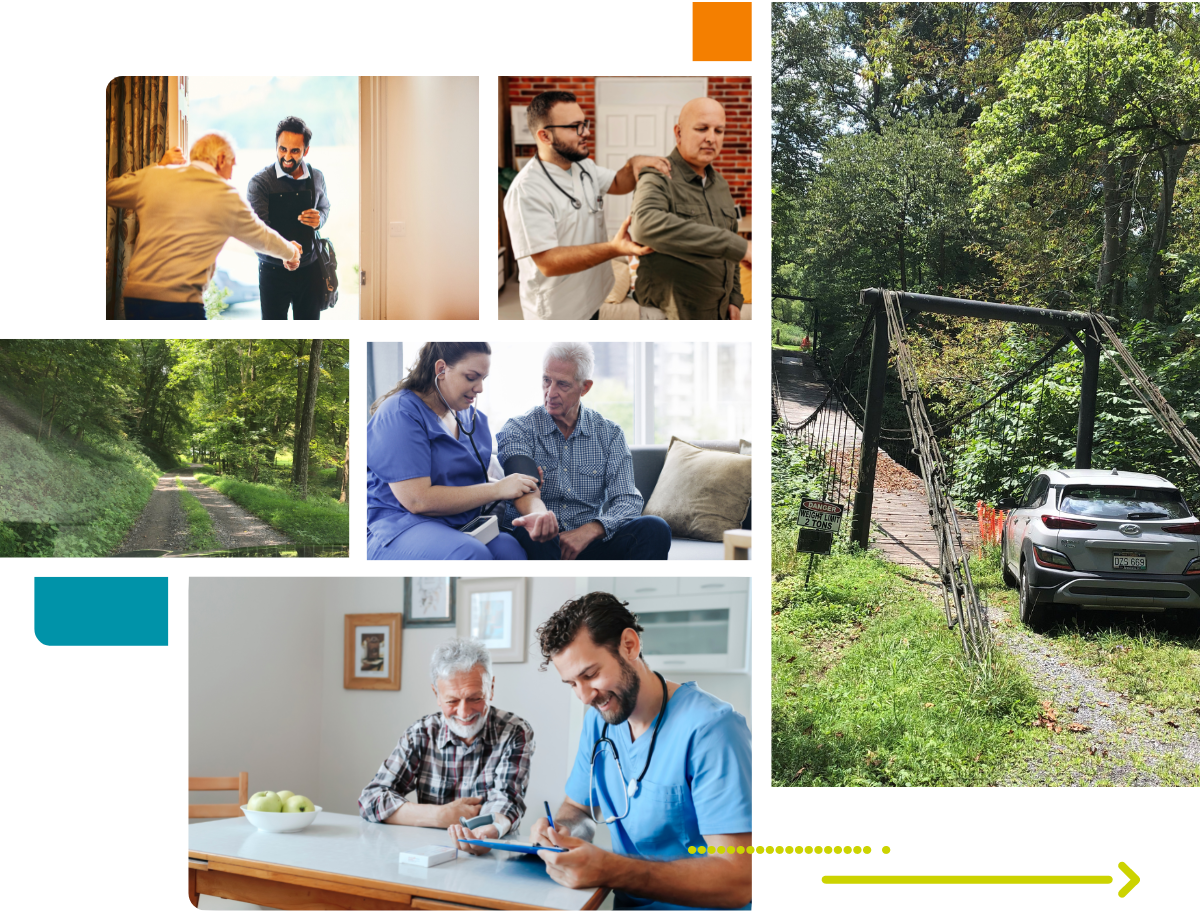
As the industry moves further into value-based care, nurse practitioners are playing an increasingly important role in driving outcomes by improving both quality and efficiency. From primary care offices to hospitals and urgent care clinics to long-term care facilities to the home, NPs are improving health and well-being across settings.
Signify Health is proud of the thousands of NPs who are part of our provider network of clinicians who collectively will visit 2.5 million homes this year. With their focus on diagnostics, prevention, and health education, NPs are equipped to identify and help address the set of medical, behavioral and social needs that are unique to those we are privileged to serve. The stories of Heather, Sherry, and Katelin illustrate how Signify NPs are leveraging their advanced training to provide high-value services in the home, while contributing to the high-value outcomes important to us all.
Spending quality time
Navigating the complexities of the healthcare system can be daunting for members. Between appointments and follow-ups, benefits, and billing, members can often feel alienated or overwhelmed, especially when it comes to financial matters.
Signify NPs like Heather Swanson-Hill have an opportunity to spend valuable time with members during in-home health evaluations (IHEs) to answer any questions they have about their health and about the healthcare system. On a recent home visit, a member was unsure if her health plan would pay for a shingles vaccine. Heather picked up the phone, called the member’s plan, and discovered there was a minimal copay for the vaccine.
In Heather’s words, “It’s the simple things!”
Being in the right place, at the right time
It can be all too easy for members to get disconnected from their care, especially when they are isolated, immobile, or in financial distress. Sometimes, all it takes is a missed appointment to affect a member’s health – especially when medication refills hang in the balance.
 Signify NPs like Sherry Shenoda often serve as connective tissue between the healthcare system and members who have disengaged from their care. Sherry, a former ER nurse, was performing a routine IHE at the height of the COVID-19 pandemic with a member who had not seen their PCP in over a year. The member’s PCP had instructed her to get lab work done prior to getting her blood pressure medication refilled. The member had been splitting their pills in half to make them last longer as she waited out the pandemic rather than make an appointment to receive lab work.
Signify NPs like Sherry Shenoda often serve as connective tissue between the healthcare system and members who have disengaged from their care. Sherry, a former ER nurse, was performing a routine IHE at the height of the COVID-19 pandemic with a member who had not seen their PCP in over a year. The member’s PCP had instructed her to get lab work done prior to getting her blood pressure medication refilled. The member had been splitting their pills in half to make them last longer as she waited out the pandemic rather than make an appointment to receive lab work.
During the evaluation, Sherry discovered the member was experiencing a hypertensive crisis; her blood pressure was dangerously high because she wasn’t taking her medication appropriately, and she was at risk for stroke. After explaining to the member what was happening, Sherry used the member’s phone to call 911 and called the member’s PCP and family with an update while waiting for an ambulance to arrive. When medical personnel arrived at the member’s home, Sherry’s findings were confirmed and the member was transported to the emergency department.
In Sherry’s words: “Talk about being at the right place at the right time!”
Planting seeds of prevention
The time Signify NPs spend with members in their homes is precious, personal, and valuable. A lot can happen over the course of a given IHE, but one thing members can be sure of is that the clinician visiting them is there to listen, to learn, and to help. Spending time in the comfort of a member’s home, Signify NPs have an opportunity to truly understand the person sitting across from them and develop a relationship founded on trust.
That level of trust between an NP and a member can be impactful in ways a traditional patient-provider relationship cannot. Just ask Signify NP Katelin Breuning. 
Katelin was recently performing an IHE with two members – a husband and wife – whom she had visited the year prior. After entering the couple’s home and exchanging greetings, Katelin was about to begin her assessment when she was interrupted by a sincere thank you from one of the members. During Katelin’s last visit, she noticed the member’s wife was showing signs of Parkinson’s Disease over the course of the assessment. Based on those symptoms – and the concerns and stories the member told Katelin during her visit – Katelin referred the member to her doctor and talked through what to share and what questions to ask on her visit.
The member told Katelin that her referral led to a diagnosis of early-stage Parkinson’s. She’s currently on medication that is slowing the progression of the disease and improving her daily function.
“Because of this,” Katelin said, “she has not had any falls, she is able to get out and do the things she wants to do, and has become more confident in herself. I made an impact in both of their lives by taking the time to observe and listen to their story to make an appropriate recommendation that ended up with a diagnosis, treatment, and improvement in quality of life.”
Interested in learning more about clinical careers with Signify Health? Find out more here.
